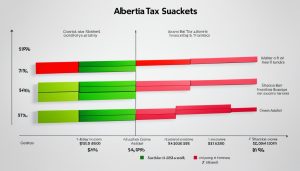Did you know that Ontario homebuyers pay a whopping $2.9 billion in land transfer taxes every year? This one-time tax, which must be paid when purchasing real estate in the province, can significantly impact the overall cost of a home. The amount of land transfer tax payable varies based on the property’s purchase price, with the tax ranging from 0.5% to 2.5% of the home’s value for most buyers.
Understanding the land transfer tax in Ontario is crucial for homebuyers who want to budget accurately and potentially explore ways to reduce this closing cost. In this article, we’ll delve into the details of the Ontario land transfer tax, including how to calculate it, who is responsible for paying it, and any available exemptions or rebates.
Introduction to Land Transfer Tax in Ontario
The land transfer tax is a crucial consideration for homebuyers in Ontario. This tax must be paid on every conveyance of land, including the purchase of residential properties such as homes, condos, and commercial real estate. The land transfer tax is calculated as a percentage of the property’s purchase price and is payable by the buyer at the time of closing.
1. Definition of Land Transfer Tax
The land transfer tax is a one-time fee levied by the provincial government of Ontario on the transfer of real estate ownership. This tax ensures that the province collects revenue from property transactions, with the rate varying based on the property’s value.
2. When is Land Transfer Tax Payable?
The land transfer tax must be paid in full at the time of closing, when the ownership of the property is officially transferred from the seller to the buyer. The tax is calculated and paid as part of the closing costs associated with the real estate transaction.
3. Importance of Factoring Land Transfer Tax in Home Purchase Budget
Prospective homebuyers in Ontario must carefully consider the land transfer tax when planning their home purchase budget. This tax can add a significant amount to the overall closing costs, often ranging from 0.5% to 2.5% of the property’s value. Failing to account for the land transfer tax can lead to unexpected financial challenges during the closing process.

Calculation of Land Transfer Tax in Ontario
When purchasing real estate in Ontario, the land transfer tax is calculated based on a tiered, marginal tax rate system. This means that the tax rate increases as the purchase price of the property rises. Understanding how to calculate land transfer tax in Ontario is crucial for homebuyers to accurately budget for this significant closing cost.
Marginal Tax Rates Based on Purchase Price
The Ontario land transfer tax rates are as follows:
- On the first $55,000 of the property value: 0.5%
- On the portion of the property value between $55,000 and $250,000: 1.0%
- On the portion of the property value between $250,000 and $400,000: 1.5%
- On the portion of the property value exceeding $400,000: 2.0%
Calculation Example
For example, if you are purchasing a home in Ontario for $600,000, the land transfer tax calculation would be as follows:
| Property Value Range | Tax Rate | Tax Payable |
|---|---|---|
| First $55,000 | 0.5% | $275 |
| $55,000 to $250,000 | 1.0% | $1,950 |
| $250,000 to $400,000 | 1.5% | $2,250 |
| $400,000 to $600,000 | 2.0% | $4,000 |
| Total Land Transfer Tax Payable | $8,475 |
Quick Calculation Formula
To quickly calculate the land transfer tax in Ontario, you can use the following formula:
- On the first $55,000 of the property value, the tax is 0.5%.
- On the portion of the property value between $55,000 and $250,000, the tax is 1.0%.
- On the portion of the property value between $250,000 and $400,000, the tax is 1.5%.
- On the portion of the property value exceeding $400,000, the tax is 2.0%.
- Add up the taxes calculated in steps 1-4 to get the total land transfer tax payable.

How Much is Land Transfer Tax in Ontario?
The amount of land transfer tax payable in Ontario depends on several factors, including the property’s purchase price, its location, and the buyer’s status. Understanding these key factors can help homebuyers in Ontario better estimate and budget for their land transfer tax obligations.
1. Factors Affecting Tax Amount
The primary factor determining the land transfer tax in Ontario is the purchase price of the property. The tax is calculated as a percentage of the property’s value, with higher-priced homes resulting in a higher tax bill. Additionally, the property’s location, as well as the buyer’s status, can influence the final tax amount.
2. Property Location and Municipal Taxes
The land transfer tax in Ontario is levied by both the provincial government and, in some cases, the municipal government. Homebuyers in the City of Toronto, for example, must pay an additional Toronto Land Transfer Tax on top of the provincial land transfer tax, which can significantly increase the overall tax burden.
3. Buyer Status and Eligibility for Rebates
The buyer’s status can also affect the land transfer tax payable in Ontario. First-time homebuyers, for instance, may be eligible for a rebate that can reduce or even eliminate the land transfer tax. Similarly, certain property transfers between family members may be exempt from the tax entirely.

Exemptions and Rebates
While most homebuyers in Ontario must pay the land transfer tax, there are some exemptions and rebates available that can help offset this significant closing cost. These include the first-time home buyer land transfer tax rebate, the spousal transfer exemption, and the farmland transfer exemption between family members.
1. First-Time Homebuyer Rebate
First-time home buyers in Ontario may be eligible for a rebate of up to $4,000 on the land transfer tax they paid. To qualify, the buyer must be a Canadian citizen or permanent resident and must not have owned a home anywhere in the world before. The rebate is calculated as 75% of the total land transfer tax owed, up to a maximum of $4,000.
2. Spousal Transfer Exemption
When a property is transferred between spouses, either as a result of a marriage or the breakdown of a marriage, the land transfer tax can be fully exempt. This exemption applies to both married couples and common-law partners, and is designed to facilitate the smooth transfer of the family home during life events.
3. Farmland Transfer Between Family Members
Transferring ownership of farmland between certain family members, such as parents and children, can also be exempt from the land transfer tax exemptions ontario. This exemption is intended to support the intergenerational transfer of agricultural properties and keep family farms in operation.

Payment Process
When it comes to the Ontario land transfer tax, the rules are straightforward – the tax must be paid in full at the time of closing, when the property’s ownership is officially transferred from the seller to the buyer. This ensures that the province collects the necessary revenue from the real estate transaction.
When to Pay Land Transfer Tax?
The land transfer tax in Ontario is due on the closing date of the property purchase. Buyers are required to submit the full payment to their lawyer or notary, who will then remit it to the government on the buyer’s behalf. Failure to pay the tax on time can result in penalties and interest charges, so it’s crucial that the payment is made promptly.
Lawyer’s Role in Facilitating Payment
The buyer’s lawyer or notary plays a critical role in the land transfer tax payment process. They are responsible for calculating the exact amount owed, based on the purchase price of the property and the applicable tax rates. The lawyer will then ensure that the full payment is made to the government at the time of closing, as part of the overall real estate transaction.
Consequences of Late or Non-Payment
Failing to pay the Ontario land transfer tax on time can have serious consequences. The government may impose penalties, interest charges, and even legal action against the buyer. In some cases, the transfer of ownership may even be delayed or refused until the outstanding tax is paid in full. Therefore, it’s crucial for buyers to work closely with their lawyer or notary to ensure the land transfer tax is paid promptly and in accordance with the ontario land transfer tax rules.
Conclusion
The Ontario Land Transfer Tax is a significant closing cost that homebuyers must consider when purchasing a property in the province. The amount of tax payable is calculated as a percentage of the home’s purchase price, with higher-value properties resulting in higher tax bills. Homebuyers should use the ontario land transfer tax calculator to estimate the tax they’ll owe and factor it into their overall home purchase budget.
While the land transfer tax can be a substantial expense, there are some exemptions and rebates available, such as the first-time homebuyer rebate. By understanding the land transfer tax regulations and planning accordingly, homebuyers in Ontario can navigate the home-buying process more effectively and ensure a smooth closing.
In summary, the how much is land transfer tax in ontario is an important factor to consider when purchasing a home in the province. By being aware of the tax and incorporating it into their financial planning, homebuyers can make informed decisions and have a more successful home-buying experience.
FAQ
1. What is the land transfer tax in Ontario?
The Ontario Land Transfer Tax is a one-time tax that homebuyers must pay when purchasing real estate in the province. The amount of tax payable varies depending on the purchase price of the property, ranging from 0.5% to 2.5% of the home’s value.
2. Who pays the land transfer tax in Ontario?
The land transfer tax in Ontario is payable by the buyer of the property at the time of closing. It is a tax that must be paid on every conveyance of land, including the purchase of homes, condos, and commercial properties, tendered for registration in the province.
3. How do you calculate the land transfer tax in Ontario?
The Ontario Land Transfer Tax is calculated using a tiered, marginal tax rate system based on the purchase price of the property. The tax is payable as a percentage of the property’s value, with higher-priced homes resulting in higher tax bills.
4. What is the land transfer tax rate in Ontario for 2024?
The land transfer tax rates in Ontario for 2024 have not been announced yet. The tax rates are typically reviewed and adjusted periodically by the provincial government, but the specific rates for 2024 are not currently available.
5. How can I avoid paying land transfer tax in Ontario?
While there are some exemptions and rebates available, most homebuyers in Ontario must pay the land transfer tax. However, there are a few ways to potentially reduce the amount of tax owed, such as the First-Time Homebuyer Rebate or the Spousal Transfer Exemption.
6. Are there any exemptions or rebates for the land transfer tax in Ontario?
Yes, there are some exemptions and rebates available for the Ontario Land Transfer Tax. These include the First-Time Homebuyer Rebate, the Spousal Transfer Exemption, and the Farmland Transfer Between Family Members exemption, among others.
7. When and how is the land transfer tax paid in Ontario?
The Ontario Land Transfer Tax must be paid in full at the time of closing, when the property’s ownership is officially transferred from the seller to the buyer. The tax is typically paid through the buyer’s lawyer or notary, who facilitates the payment process.




